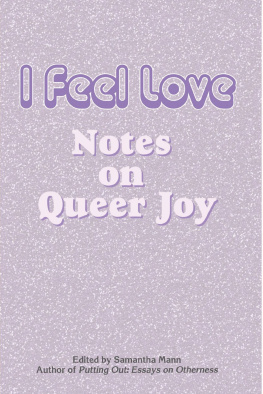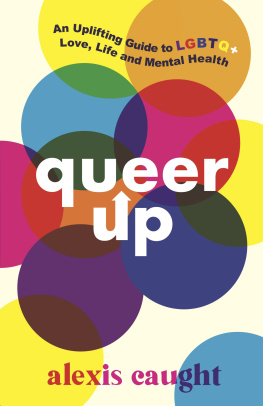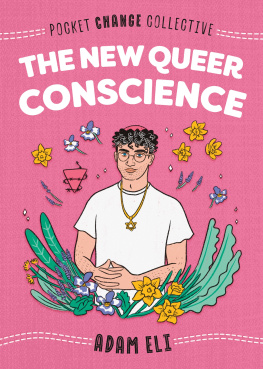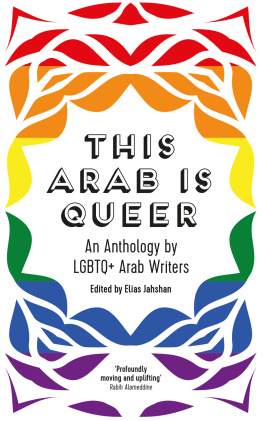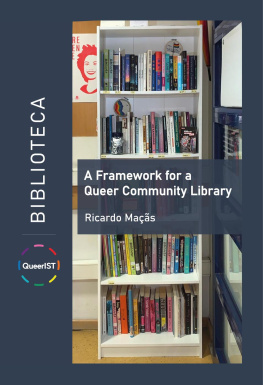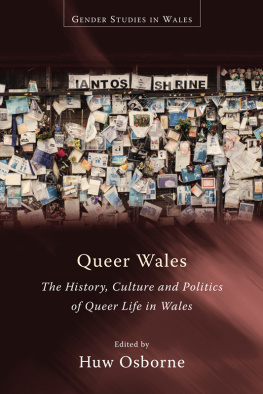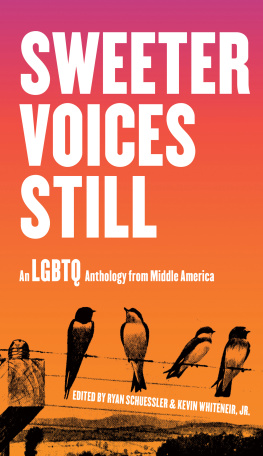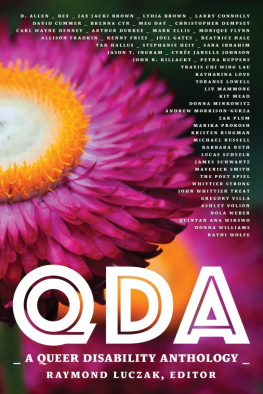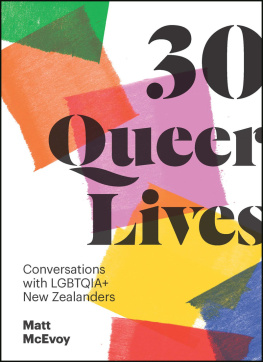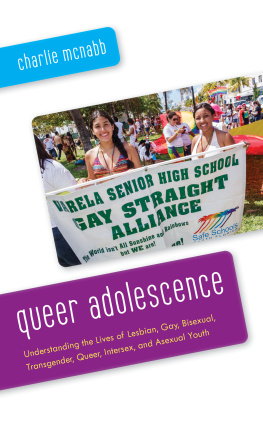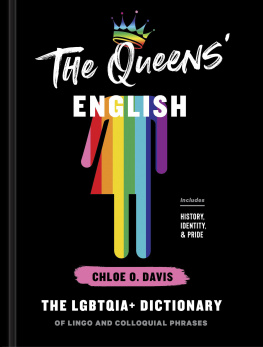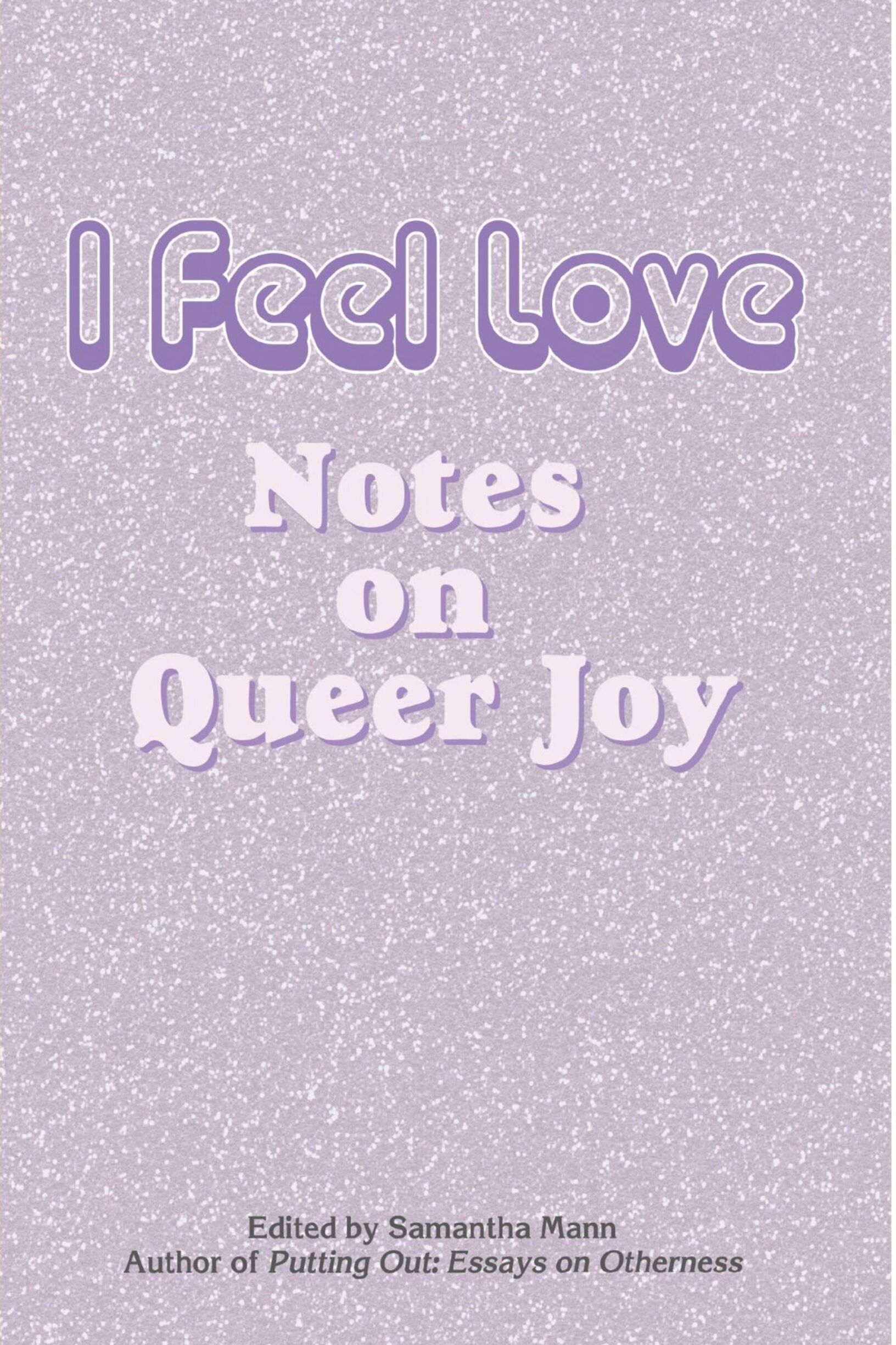Foreward
Samantha Mann
Dont you think its wild? I asked my uncle over a glass of wine as we lounged around a firepit in my parents backyard. Its December, but in Phoenix that means prime outdoor lounging weather. Like, I am legally married, and I am literally holding my son who does not have an ounce of my DNA and nonetheless my name is emblazoned across his birth certificate along with Alissas. I took 8 weeks of Paid Family Leave in the state of New York as maternity leave. Right, its crazy? My uncle had married his partner some 30 years after they started dating when California legalized civil unions around 2006.
Its the way its supposed to be, he said taking a gulp of wine and making a silly face to my smiling son.
His casualness was grating.
Alissa and I married in 2016, one year and one month after the Supreme Court declared same-sex marriages legal as defined by federal law and declaring civil unions separate and unequal. The queer legal ease of my life has astounded me and often leaves me with a deep-rooted sense of survivors guilt. When I came out it was to minimum fanfare in my family, everyone already knew and loved Alissa. My parents had already secretly whispered to themselves about the possibility of my sexual orientation for years. Sure, I had harbored personal shame and anxiety about being out, its something that continues to tug to varying degrees even today, but the general smoothness of my queer experience is a marvel that I dont know how to reconcile with the history of violence and marginalization against the community. During his twenties, my uncle starved himself, emotionally and physically. For a long time, examining his sexuality was too much for him to bear yet alone accept, so like many queer people his body took the brunt of his shame. Looking at pictures of him from that time, he is hollowed out, clearly starved. Starved of self-acceptance, confidence, and empty of thoughts about the possibility of a hopeful future. This was the early 90s, not some far-off time or place. Queer folks have spent centuries, eons, losing their family, friends, and lives due to their sexual and gender identities and here I am waltzing around with a federally legal marriage certificate and touting around my baby, creating branches on our family tree.
The ostentation of it all! A tree and branch that a mere 30 years prior might not have existed at all. I think a lot about missing family trees and branches.
Picturing a forest full of stumps, all erased, invisible, and never allowed to begin to grow causes my stomach to drop, feeling sick.
Im mad every time I learn something new about queer culture, how could I have not known about the Daughters of Bilitis? I quiz my wife when we watch TV and shove tidbits of knowledge into her brain when I can, feeling like its the least I can do to make sure we know who we came from and why we have the rights we have. It never feels like enough. I feel guilty having this life and not knowing how to honor the people who came before, the ones who fought, the ones who died, the ones who lived in social isolation to be with their lovers, the ones who lived and died closeted without experiencing life in the open as their truest self, and the millions who suffered silently. I havent done anything to deserve the queer life I have.
I am shocked when I try to explain all of this angst to my uncle, who has lost too many friends due to AIDS and lives in a country where his relationship was not seen as legal until he was the ripe age of 50.
Its just the way its supposed to be, your life feeling easy is the whole point, he stated again ensuring me there is no expectations of me to be indebted, other than to live my life as I see fit.
The media representation of queer culture has come a long way, but joy is an area where more attention needs to be paid. Our depicted stories are often focused on trauma and hardship, but that is not the magic of queer people; most humans have stories of loss and longing. While media representation concentrates on queer stories surrounding this pain they do so at the expense of breezing past the magic.
Because of historical social obstacles and our traumatic pasts, queer people are capable of experiencing and appreciating depths of joy unknown to most. We have an ability to uncover joy in surprising places. Queer people know joy can be fleeting and when we have it, we scoop it up with our bare hands, devouring it like a child placed in front of cake, swallowing it whole, not leaving a crumb behind, not a fork in sight.
Queer researcher and psychologist Dr. MacCrate stated, I think queer people are good at responding to things flexibly and creatively. A lot of our lives are made up, in a way. There hasnt been such a laid-out path for us to follow, so when things get hairy and we dont see a way ahead it feels like, oh, okay, weve been here before. This ability to create something from nothing and imagine opportunities never offered is the magic.
We are creators, even if only by existing as ourselves.
This collection was put together with love and joy and is sent out as an offering. We honor our past by celebrating and appreciating present moments of joy, whether its all encompassing or merely a single ember burning in the dark. We will take it whenever we can and allow it to live inside us as often as possible. The collection is assembled as an attempt to make up for years of lost oral story-telling, both passed down in family generations and that missing from mainstream publications and outlets.
The realization that today family trees of variant types are blossoming at a higher rate than ever before is a salve.
This collection is a flowering branch for us all.

